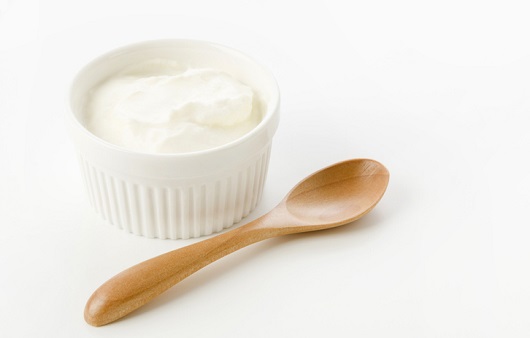그릭요거트 단백질 좋지요 든든하게 챙기셨네요
Morning young leaf vegetables and apples
Make Greek yogurt very firm.
Eat it like a sauce.
Why should you eat Greek yogurt?

Helps lower blood pressure
The World Health Organization (WHO) recommends a maximum daily sodium intake of 2,000mg. Excessive sodium intake increases the risk of developing hypertension, stroke, diabetes, and other health issues.
To lower blood pressure, it is important to reduce sodium intake. 100g of fat-free Greek yogurt contains only 36mg of sodium. Conversely, most regular yogurts contain more than twice the amount of sodium compared to Greek yogurt.
2. Promotion of Digestive Health
Greek yogurt is rich in probiotics, which collectively refer to beneficial bacteria in the gut. Probiotics help produce lactic acid.
This lactic acid makes the intestinal environment more acidic, killing harmful bacteria and promoting the growth of beneficial bacteria. When beneficial bacteria in the gut are present in higher proportions and harmful bacteria in lower proportions, the intestine becomes healthier.
3. Longer-lasting fullness
Proteins suppress the secretion of the hunger hormone ghrelin and help you feel fuller. Additionally, because they are digested more slowly than carbohydrates, they are also good for preventing overeating.
Generally, 100g of fat-free Greek yogurt contains about 10g of protein. When comparing the same amount, plain Greek yogurt has twice the protein content of regular yogurt and only half the sugar content.
4. Help with weight loss
Plain fat-free Greek yogurt contains less than 4g of carbohydrates and less than 0.5g of fat per 100g. The calorie content is 59 kcal per 100g, making it a good choice for people looking to reduce carbohydrate and fat intake as well as those managing their weight.
5. Keep your brain healthy
Vitamin B12, which is abundant in oysters, salmon, and eggs, is also rich in Greek yogurt. 100g of plain non-fat Greek yogurt provides 13% of the recommended daily intake of vitamin B12.
Vitamin B12 plays a crucial role in cell production and is a nutrient that keeps bones, hair, skin, and nails healthy. Additionally, Vitamin B12 is very important for brain health. It is especially necessary for memory and concentration. Furthermore, it is essential for producing dopamine, a hormone that induces feelings of achievement and satisfaction, thereby motivating individuals.
6. Strengthen bones and the heart
Calcium is a nutrient that strengthens teeth and bones, and protects vascular and heart health. Dairy products are the best source of calcium. Fish eaten with bones, like anchovies, also contain a lot of calcium, but the absorption rate of calcium from milk and dairy products is higher than that from fish.
Although the amount of calcium in Greek yogurt is less than that in regular yogurt, eating 100g of fat-free Greek yogurt can fulfill 11% of the daily recommended calcium intake.
7. Suitable for people sensitive to dairy products
People with lactose intolerance, who cannot digest and absorb the lactose in milk, tend to avoid consuming milk and dairy products. For them, Greek yogurt can be a good alternative.
This is because a significant portion of the lactose is removed during the process of making Greek yogurt. Greek yogurt does not contain as much lactose as other dairy products, so consuming it in small amounts does not cause severe diarrhea or indigestion.
8. Active metabolism
Greek yogurt is a good source of iodine. Iodine is an essential mineral for maintaining thyroid health. Our body uses iodine to produce thyroid hormones, which are secreted into the body to regulate the functions of all organs. A deficiency in iodine can lead to hypothyroidism.
